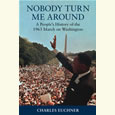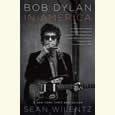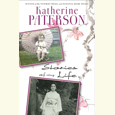Semple Gifts
Maria Semple talks about writing sitcoms, saving frogs, and turning her bestselling novel into a film
Maria Semple never planned on writing for film and television. On a whim, she sold her first screenplay straight out of college, moved from New York City to Los Angeles, and almost by accident embarked on what grew into a fifteen-year career writing scripts for (mostly) hit television shows that include Arrested Development andMad About You. Semple eventually quit working in television; had a daughter with boyfriend, George Meyer, a fellow comedy writer; and, in 2008, published her debut novel, This One is Mine. She was inspired to start her second novel following the family’s relocation to Seattle, a place she initially despised. In Where’d You Go, Bernadette, out this month in paperback, the eponymous protagonist offers a scathing and hilarious criticism of the city and almost everyone she encounters there. Widely cited as one of the best books of 2012, the epistolary novel became a national bestseller.
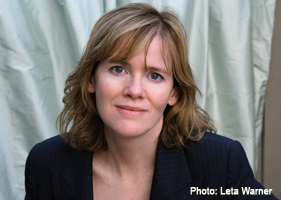 The story follows Bernadette Fox, a MacArthur-genius-grant-winning architect whose artistic expressions are permanently blunted by the destruction of one of her projects. Instead of designing buildings, Bernadette now devotes her considerable energies to sparring with neighbors over her crumbling house and to her fifteen-year-old daughter, Bee, at whose behest she’s planning a family trip to Antarctica. On his way to lunch one afternoon, Bernadette’s workaholic husband, Elgin, an inventor at Microsoft, catches a glimpse of his wife passed out in a pharmacy, snoozing in a fishing vest while waiting to pick up a bottle of seasickness medication strong enough to qualify as an antipsychotic. Elgin reacts with alarm. To avoid being committed to a mental institution, Bernadette claws her way through the overgrown blackberry bushes in their basement—yes, in the basement—and slips through a window, disappearing without a trace.
The story follows Bernadette Fox, a MacArthur-genius-grant-winning architect whose artistic expressions are permanently blunted by the destruction of one of her projects. Instead of designing buildings, Bernadette now devotes her considerable energies to sparring with neighbors over her crumbling house and to her fifteen-year-old daughter, Bee, at whose behest she’s planning a family trip to Antarctica. On his way to lunch one afternoon, Bernadette’s workaholic husband, Elgin, an inventor at Microsoft, catches a glimpse of his wife passed out in a pharmacy, snoozing in a fishing vest while waiting to pick up a bottle of seasickness medication strong enough to qualify as an antipsychotic. Elgin reacts with alarm. To avoid being committed to a mental institution, Bernadette claws her way through the overgrown blackberry bushes in their basement—yes, in the basement—and slips through a window, disappearing without a trace.
The novel is laid out as a collection of emails, text messages, and letters sent by Bee in the hope of tracing her mother’s whereabouts. Both a mystery and an outrageously funny cautionary tale about the ways in which an artist without a productive outlet can become a menace to society, Where’d You Go, Bernadette makes for a hilarious tale that even its derided Seattle readers have embraced. Prior to her Nashville appearance at Parnassus Books, Semple recently answered questions from Chapter 16 via email.
Chapter 16: Writing for television involves far more collaboration than the solitary work of a novelist requires. Is there anything you miss—or, conversely, that you’re relieved to be liberated from—about creating with a team?
Semple: I definitely miss the laughter, gossip, and drums of Costco Red Vines. I also miss being in the presence of brilliant people at the top of their game. That’s a sad thing to have walked away from. I do prefer writing novels, mainly because my time is my own. If I’m not feeling inspired, I can take a nap or binge-watch Breaking Bad. Even if I am feeling inspired, I write for only a couple of hours a day and then take a long walk. In TV, we were so frenzied by the relentless deadlines that there’s no way I could wander the streets, nap, or watch an entire season of TV in one day. And, hey, I can buy my own Red Vines.
Chapter 16: Marissa Mayer’s decision to end Yahoo’s telecommuting option has made working from home a subject of national debate. Any thoughts? Do you take working for yourself as seriously as you’ve treated more formal workplace arrangements?
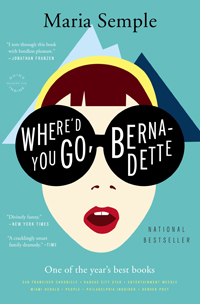 Semple: That’s a terrific question. It’s perhaps my biggest struggle as a novelist, even more than the work itself: finding the time for the work. I do think this is more of a problem for women than men. Even when I’m in the middle of writing a novel—which, at least to me, seems like pretty serious business—I get constantly asked to volunteer at school, go on walks, have coffee with a friend-of-a-friend-of-a-friend who wants to break into showbiz. When I was in an office, I wouldn’t get any such requests. People understood I had to work. But now that my time is my own, it’s up to me to set the boundaries myself, sometimes a dozen times per day. Every time I do, I feel guilty. It’s highly stressful!
Semple: That’s a terrific question. It’s perhaps my biggest struggle as a novelist, even more than the work itself: finding the time for the work. I do think this is more of a problem for women than men. Even when I’m in the middle of writing a novel—which, at least to me, seems like pretty serious business—I get constantly asked to volunteer at school, go on walks, have coffee with a friend-of-a-friend-of-a-friend who wants to break into showbiz. When I was in an office, I wouldn’t get any such requests. People understood I had to work. But now that my time is my own, it’s up to me to set the boundaries myself, sometimes a dozen times per day. Every time I do, I feel guilty. It’s highly stressful!
Chapter 16: Like you, Bernadette is a Seattle transplant from Los Angeles. Her wicked and hilarious derision for Seattle is ceaseless; she describes the city’s inhabitants as having two hairstyles: “short gray hair and long gray hair.” When people ask if she can believe the weather they’re having, she wants to snap, “Actually I can believe the weather. What I can’t believe is that I’m actually having a conversation about the weather.” Has the book’s positive reception in Seattle surprised you?
Semple: Yes, I worried I’d get run out of town. Which would have been a real irony because by the time I finished the book I loved Seattle. It turns out everyone has a sense of humor about themselves after all. Whoops, got that part wrong!
Chapter 16: Your efforts on behalf of the Global Amphibian Assessment have been so appreciated that a species of frogs discovered in Sri Lanka was named for your daughter. Can you explain your enthusiasm for amphibians?
Semple: God bless you for asking this question. My boyfriend, George Meyer, and I got interested in frogs over twenty years ago when we learned they were mysteriously disappearing. As of today, forty percent of all frog species are on the verge of extinction. This is due to habitat destruction, global warming, and a mysterious, deadly fungus. It turns out frogs are more susceptible than any other animal to man’s heedless consumption and environmental annihilation. (Sorry you asked?) Anytime we can help out the frogs, we do.
Chapter 16: It appears that you and your boyfriend share several highly unusual interests, in addition to the kind of work you do. What’s been the best or worst part of living with a partner who’s also a comedic writer?
Semple: The best part, by far, is that he understands what I do for a living: how long it takes, how hard it is, the commitment it requires to do good work. I usually don’t let him see what I’m writing until pretty late in the process, around the fourth or fifth draft. When I do, he gives me brilliant notes and tosses in some killer jokes. No complaints there!
Chapter 16: Even more complicated is the question of translating the novel to the big screen. Any ideas how that might work? How involved do you plan to be in the film project?
Semple: People wonder why I didn’t adapt the book myself, and my simple answer is it would have been too hard. I have no idea how to translate the book’s rants, letters, and other documents onto the screen. But we have a terrific pair of screenwriters, Scott Neustadter and Michael Weber, on the case. They wrote the hugely charming (500) Days of Summer. It was non-linear, funny, and had wonderful characters. I’m thrilled to be in their able hands. They came to Seattle, and I showed them Microsoft, dinner at the top of the Space Needle, and where I imagined Bernadette’s house to be. We had a ton of laughs, and I can’t wait to see what they come up with. I’m a producer on the project, but I’m in such fabulous hands with the producers (Nina Jacobson and Brad Simpson, who did The Hunger Games) and the studio (Annapurna Pictures, who did Zero Dark Thirty) that I’m going to leave these things in the hands of the experts.
Maria Semple will discuss her bestselling novel, Where’d You Go, Bernadette, released in paperback this month, during a Wine with the Author evening hosted by Parnassus Books in Nashville on April 30 at 6:30 p.m. The event is free and open to the public.

